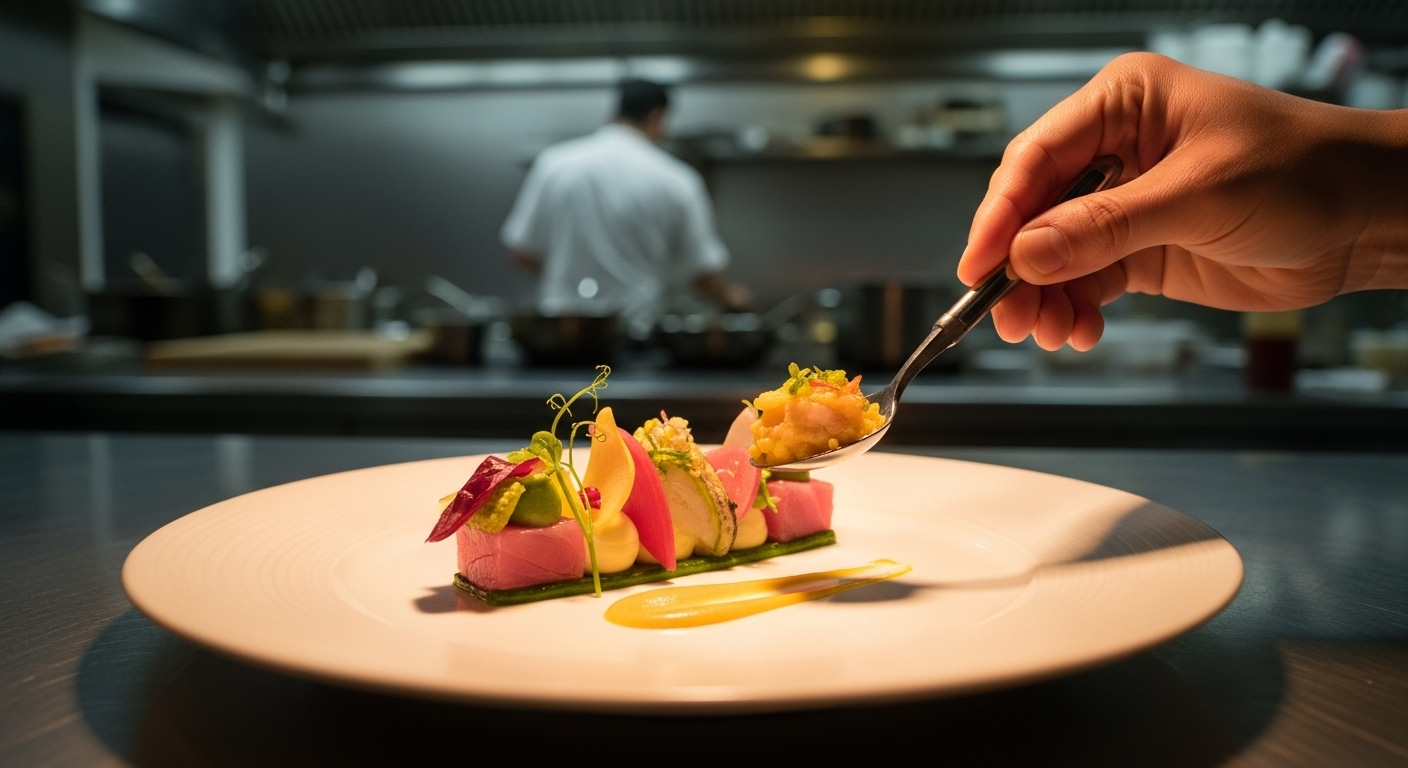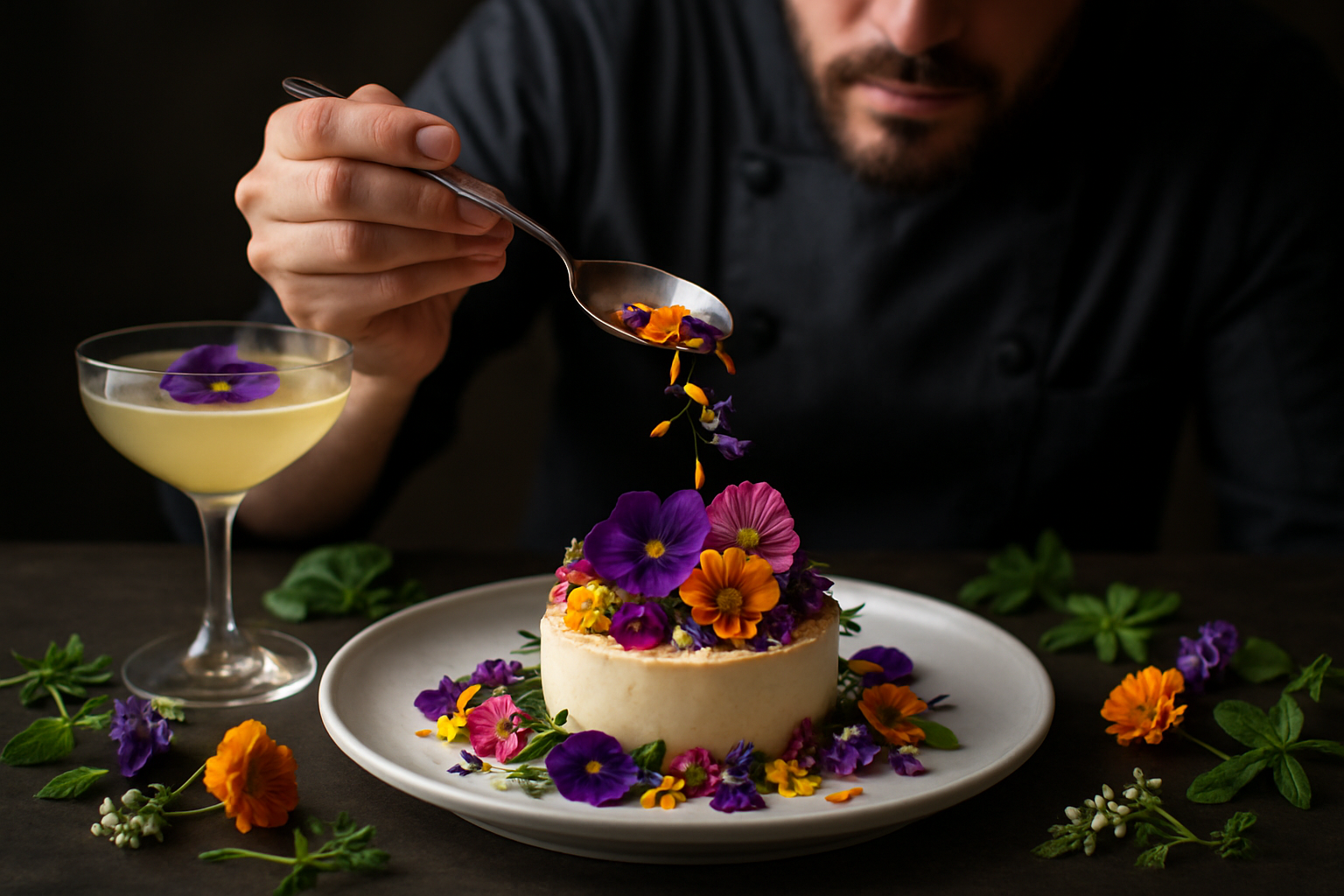Gastronomic Expeditions: Culinary Tourism's Next Frontier
Embark on a journey where flavors become the compass and local dishes the landmarks. Gastronomic expeditions are redefining travel, transforming foodie pursuits into immersive cultural experiences. This rising trend goes beyond mere tasting; it's about understanding the story behind each bite, connecting with local communities, and exploring destinations through their culinary heritage.

This shift began in the early 2000s as globalization made diverse cuisines more accessible. Food shows and social media further fueled interest in international gastronomy. Today, culinary tourism has evolved into a sophisticated niche, with travelers seeking authentic, hands-on experiences that go beyond restaurant hopping.
Crafting the Perfect Gastronomic Itinerary
Planning a gastronomic expedition requires a blend of research and spontaneity. Start by identifying regional specialties and seasonal offerings. Look for food festivals, markets, and cooking classes that showcase local ingredients and techniques.
Consider incorporating farm visits, wine tastings, or foraging excursions to understand the journey from source to plate. Seek out family-run establishments and street food vendors for authentic flavors. Balance high-end dining experiences with casual local eateries to get a comprehensive taste of the destination.
Remember to pace yourself. A gastronomic expedition is a marathon, not a sprint. Allow time between meals to explore other aspects of the culture and digest both the food and the experiences.
The Rise of Culinary Workshops and Cook-Alongs
One of the most engaging aspects of gastronomic expeditions is the opportunity to learn directly from local chefs and food artisans. Culinary workshops and cook-along experiences have gained immense popularity, offering travelers the chance to master traditional techniques and recipes.
These hands-on sessions often begin with a visit to local markets, where participants learn about indigenous ingredients. Under the guidance of expert chefs, travelers then prepare regional dishes, gaining insights into the cultural significance of each component.
The interactive nature of these experiences fosters a deeper connection with the destination and its people. It’s not uncommon for participants to form lasting friendships with their instructors and fellow food enthusiasts.
Sustainable Gastronomy: A New Focus
As awareness of sustainability grows, gastronomic expeditions are increasingly focusing on eco-friendly and ethical food practices. This includes supporting restaurants that prioritize locally-sourced, seasonal ingredients and participating in farm-to-table experiences.
Some tours now incorporate visits to sustainable farms, fisheries, and food producers. Travelers can learn about traditional farming methods, innovative sustainable practices, and the challenges facing local food systems.
This approach not only ensures a more responsible form of tourism but also often results in fresher, more authentic culinary experiences. It allows travelers to support local economies directly and gain a deeper understanding of the region’s agricultural heritage.
The Intersection of Technology and Culinary Exploration
Technology is playing an increasingly significant role in shaping gastronomic expeditions. Mobile apps now offer self-guided food tours, connecting travelers with hidden local gems and providing historical context for regional dishes.
Augmented reality (AR) is being used in some destinations to enhance the dining experience, offering visual stories about the origin of dishes or suggesting perfect wine pairings. Meanwhile, social media platforms have become valuable tools for discovering under-the-radar eateries and connecting with local food communities.
Some tour operators are even incorporating virtual reality (VR) elements, allowing travelers to ‘visit’ farms or production facilities that might be inaccessible in person, adding an extra layer of depth to the gastronomic journey.
Savoring the Journey: Expert Tips for Gastronomic Explorers
• Research local table etiquette to show respect for cultural norms
• Carry a small notebook to jot down recipes and memorable flavors
• Learn basic food-related phrases in the local language
• Don’t shy away from street food, but choose vendors with high turnover
• Consider dietary restrictions when planning, but remain open to new experiences
• Document your culinary adventures, but be mindful of cultural sensitivities around photography
• Stay hydrated and pack digestive aids for comfort during your food-focused travels
A Feast for the Senses and the Soul
Gastronomic expeditions offer a unique lens through which to explore the world. By centering travel experiences around food, we open ourselves to a deeper understanding of cultures, traditions, and the human connections that unite us all. As this trend continues to evolve, it promises to create more meaningful, sustainable, and delicious ways to experience the diverse flavors our world has to offer. So pack your appetite, an open mind, and embark on a journey that will tantalize your taste buds and enrich your understanding of the global culinary landscape.





